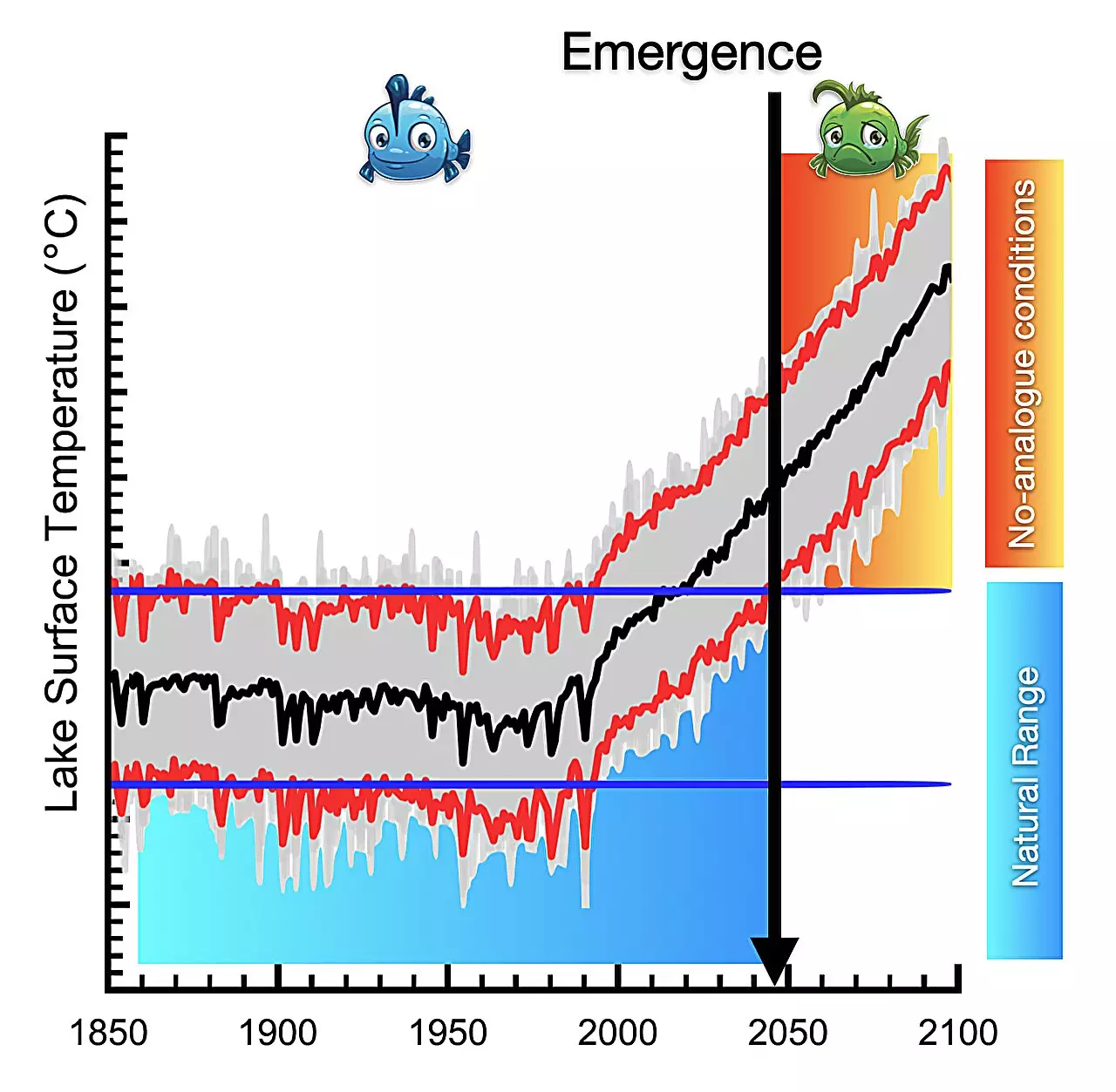In an alarming revelation, lakes—central to our planet’s ecological balance—are set to undergo unprecedented temperature changes due to escalating global warming. A groundbreaking study published in *Nature Geoscience* marks a pivotal moment in our understanding of climate change’s impact on freshwater ecosystems. This research, conducted by an international team of limnologists and climate modelers, predicts that by the end of this century, lakes will reach surface and subsurface temperature levels unprecedented in their history. This development is not merely an academic concern; it symbolizes a significant threat to biodiversity, ecosystem integrity, and our planet’s environmental health.
Pioneering Climate Modeling Techniques
The study employs an innovative modeling approach that utilizes the Community Earth System Model version 2, a sophisticated tool designed to simulate complex climate dynamics. Unlike previous studies that often focused on singular projections, this research engaged in ensemble modeling, utilizing 100 simulations to encapsulate variations in climate responses. These simulations provide a more nuanced understanding of how lakes are affected by both anthropogenic factors—like greenhouse gas emissions—and natural climate dynamics. By conducting this study on one of South Korea’s most advanced supercomputers, researchers have been able to disentangle natural variability from human-driven changes, resulting in a robust dataset that highlights alarming future scenarios.
Impacts on Tropical Lakes First
The research highlights a critical aspect of the warming process: tropical lakes will first experience these no-analog conditions as global temperatures rise by approximately 2.4 degrees Celsius above pre-industrial levels. This is particularly concerning as tropical lakes are hotspots for biodiversity, hosting countless species crucial for maintaining ecological equilibrium. The findings suggest that while some lake organisms may migrate vertically within these ecosystems to adapt to changing conditions, the alterations in their environment may prove too rapid and severe for them to adjust adequately.
Furthermore, the idea that tropical lake ecosystems will be the first to encounter these extreme conditions emphasizes a broader narrative of climate injustice, where regions with rich biodiversity and often the least resources for adaptation bear the brunt of human-induced climate change.
The Complex Dance of Stratification
The study’s revelations go beyond surface interactions. It reveals that subsurface layers of lakes are not insulated from rising temperatures; instead, they are being affected much earlier than previously anticipated. The rapid penetration of warmth into deeper layers during mixing events is a significant mechanism that could disrupt aquatic ecosystems. Contrast this with high-latitude lakes, which benefit from a degree of thermal stratification that may stave off immediate impacts. This nuanced understanding of thermal dynamics sheds light on the complex interplay between surface and subsurface ecosystems, underscoring the critical need for more holistic ecological assessments in light of climate change.
Consequences for Biodiversity and Planning Ahead
The implications of these findings are profound. The emergence of no-analog climatic conditions within lake ecosystems raises alarms about biodiversity loss and ecosystem degradation. Compared to organisms in terrestrial or marine environments, lake dwellers often face limitations in their ability to migrate to more favorable conditions. This restricted mobility accentuates their vulnerability and heightens the urgency for targeted conservation strategies.
Prof. Axel Timmermann, a co-author of the study, emphasizes the potential disruptions this could cause in aquatic ecosystems. The capacity for adaptation and resilience in these vulnerable populations becomes vital; failing to understand the timing and nature of these changes would have dire consequences for conservation efforts and urban planning related to freshwater resources.
A Call to Action
The urgent findings from this study should serve as a rallying cry for researchers, policymakers, and conservationists alike. As we stand at the precipice of irreversible climate changes, it is imperative that we invest in understanding these trends and their far-reaching impacts. Engaging in proactive adaptation strategies isn’t just a scientific or environmental issue; it is a moral imperative. The lakes of tomorrow depend on the actions we take today to mitigate climate change and preserve our natural heritage for future generations.


Leave a Reply